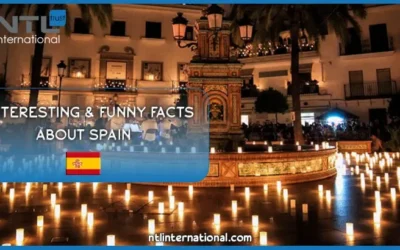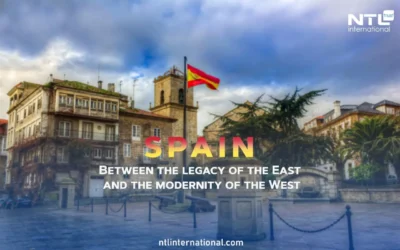
Hungarian wedding traditions are an integral part of the country’s rich and diverse culture. Since ancient times, marriage ceremonies have been associated with numerous customs and rituals that reflect the national identity and social values. Over time, these traditions have evolved from being mere personal celebrations to becoming a significant attraction for both tourism and investment. In this article, we will explore the most important Hungarian wedding traditions, how they attract couples from around the world seeking unique wedding experiences, and how these practices can contribute to boosting local investments, thus supporting the growth of the national economy.
Hungarian Wedding Traditions:
- Engagement Traditions: Hungarian wedding traditions begin with the engagement, where the groom presents a gift to the bride’s family as a sign of respect and commitment. This is followed by meticulous preparations, including selecting traditional, ornate attire and organizing a grand feast for friends and family to celebrate the new union. Afterward, the couple begins preparing for the wedding itself.
- Wedding Ceremony: The wedding day is marked by a religious ceremony, followed by celebrations that can last for several days. Hungarian weddings are known for featuring traditional folk dances, such as the “Csárdás,” which adds joy and liveliness to the festivities. The exchange of gifts between the couple and guests strengthens social bonds and reflects the culture of generosity and hospitality. The bride wears a white dress adorned with hand-embroidered Hungarian patterns, while the groom dons a traditional suit with decorative elements. During the celebration, traditional dishes like “goulash” and “langos” along with a variety of sweets, are served.
- The Couple’s First Dance: No Hungarian wedding is complete without traditional dances. The wedding features the couple’s first dance, which is often a waltz. Afterward, everyone joins the dance floor to perform lively Hungarian folk dances, including the famous “Csárdás,” known for its quick and varied steps.
- Gift Exchange: The exchange of gifts is an integral part of Hungarian wedding traditions. Guests present symbolic gifts to the couple, expressing their love and support. These gifts range from monetary contributions to help the newlyweds start their life together, to household items that assist in beginning their married life.
The Impact of Wedding Traditions on Hungarian Tourism:
Tourists visiting Hungary during the wedding season often find themselves invited to share in these unique experiences, which deepen their understanding of the local culture and create unforgettable memories. Hungarian weddings offer tourists a chance to taste traditional foods, witness folk dances, and partake in celebrations that reflect the country’s rich cultural heritage.
Investment Opportunities in the Wedding Sector:
Hungarian wedding traditions present a golden opportunity for investors in the tourism sector. Organizing weddings and providing related services can be a highly profitable field, as many foreign couples seek out unique and distinctive wedding destinations. Companies that offer wedding planning services, luxury accommodations, and culturally-themed tours can attract a large clientele.
Factors That Make Hungary an Ideal Wedding Destination:
- Historic Sites:
Hungarian castles and palaces provide enchanting venues for weddings, adding a touch of romance and grandeur. - Hungarian Hospitality:
Hungarians are known for their warm hospitality, and these celebrations offer a chance to experience traditional cuisine. - Advanced Infrastructure:
Hungary boasts a strong infrastructure, including luxury hotels and world-class restaurants, ensuring that weddings are organized to the highest standards. - Affordable Costs:
Compared to other European destinations, the cost of organizing weddings in Hungary is relatively affordable, offering great value for money.
It also serves as a major attraction for both tourists and investors. By leveraging these unique traditions, the tourism sector can be enhanced, attracting new investments that support the local economy. Whether you are looking for an investment opportunity or a memorable travel experience, Hungary is the perfect destination.
For more information on investment opportunities and tourism experiences in Hungary, please contact NTL.
Read also:
Interesting and Funny Facts About SPAIN
Spain is your choice for a safe life and a wonderful future:What if I told you about its ranking by the Global Peace Index 2020 at number 38 out of 163!!What about its privilege of providing free public health care, and having excellent international schools and...
Spain… Between the Eastern Legacy and the Western Modernity
If you want to travel to a European country but you are afraid of the idea of getting a cultural shock or a facing a difference in lifestyle, then Spain is the ideal choice for you.
Türkiye & UK 2021… New Agreement & New Investments
the Turkish Investors have started preparing their agendas to enter the UK’s investment market. This has come after the signing of the new free trade agreement between Turkey and the UK on December 29 last year, in the Turkish capital, Ankara.
Are you really familiar with the weirdest sights in Türkiye?
Here are five dazzling places you will discover that there is more to Turkey than Topkapi Palace in Istanbul or the rock formations in Cappadocia:
Nurses are invited to Germany
A golden opportunity for nurses to develop themselves and to secure a better life for their families as well in one of the best European countries for living and work.





